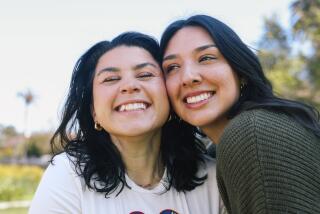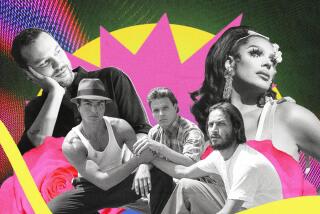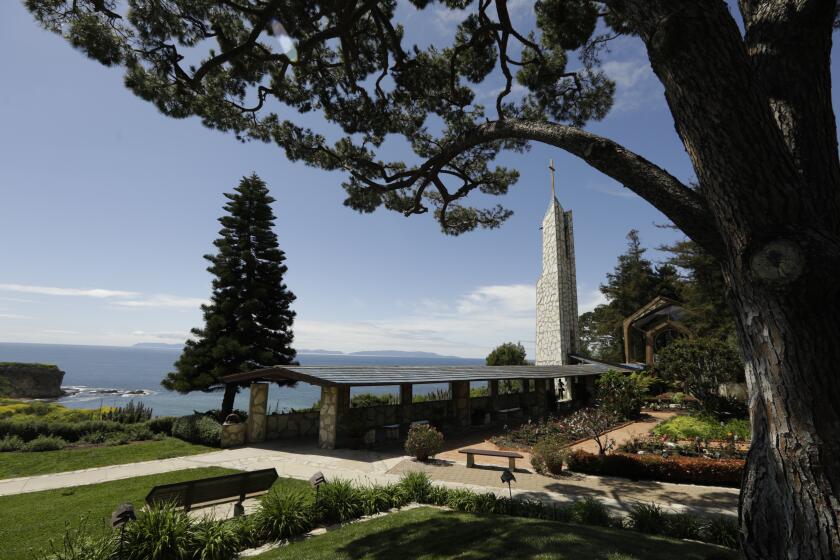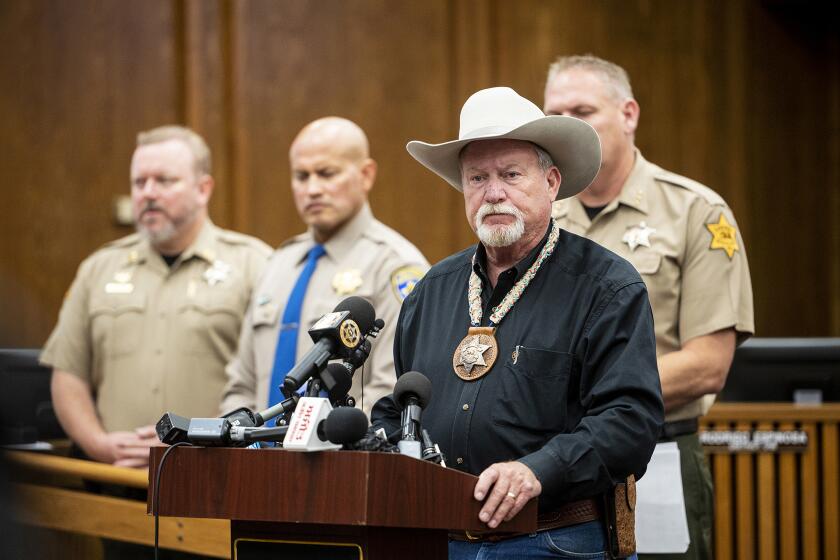L.A. student crosses the great social divide
Margarita Lopez grew up embarrassed by how easily she spoke Spanish.
As she grew fluent in English and became one of the top students at her L.A. high school, she always considered her native language a reminder of her roots as the daughter of working-class Central American immigrants.
Speaking Spanish took her back to sixth-grade remedial English, when she was given books to read “with just four words in them.” She remembered being made to feel dumb. “I was mad at being bilingual,” she told me.
Of course, she was wrong to think that way. She sees that now, as a 19-year-old freshman at Vassar College in New York’s Hudson Valley. Her roommates and friends sometimes hear her speaking Spanish — on the phone to her mother back in L.A., for example.
“That’s so cool!” they say. “You’re so lucky you can speak two languages!” “I wish I’d grown up bilingual!”
Lopez had to get far away from L.A. to see her life here with greater clarity, to take a fresh look at her childhood, her family and her neighborhood, which was looted in a riot when she was a newborn. The area’s mostly thought of as Koreatown, though part of it was recently renamed Little Bangladesh.
Lopez has traveled a long way from there to one of the most exclusive campuses in the U.S., the kind of place where it isn’t uncommon for students to jet off to Paris or South America for spring break.
Like a select few of L.A.’s brightest, she’s a young explorer crossing a great American social divide.
Spring break for her meant a trip back to L.A, which is where I caught up with her this week.
“To be from L.A. is a gift,” she told me. She can see this now at Vassar, where she has friends who have led very sheltered lives. “I feel lucky to be from a city that makes you a little tough, that makes you have this awareness of things around you,” she said.
But her background is also her burden, she said, because “I live in two worlds.”
It’s one thing to be told that your country is divided between rich and poor. It’s quite another to find yourself straddling that divide as you suddenly see very clearly what’s been lacking in your own life.
“I sometimes feel so inadequate being there,” Lopez said of Vassar. So many of the students there write with such ease and fluidity, she said, their skills sharpened at elite boarding schools.
“I’m starting to get over that because I worked hard to be there,” she said. “I know I’m not any less smart. But I know I’m not as well-prepared. So I’m learning to manage my time better and getting started on my papers earlier.”
A lot of people shrink before the challenge of crossing worlds. I have a feeling Lopez will not, in part because she’s been preparing for this moment for many years now.
Many adults have placed great hopes in her. They saw a bright child, and asked more of themselves as educators and parents, and asked more of her.
“She’s an extraordinarily mature person with a love of the English language,” said Roger Lowenstein, the founder of her high school, the Los Angeles Leadership Academy in Lincoln Heights. “And she’s wonderfully empathetic. When you talk to Margarita, she’s very present.”
At 13, she won a school essay contest and earned a scholarship to attend summer classes at Miss Porter’s School in Connecticut — Jackie Kennedy’s alma mater. The experience, she said, helped prepare her for the transition to Vassar.
Miss Porter’s was so impressed with Lopez, Lowenstein told me, that they offered her a full scholarship to attend the boarding school year-round. But her parents weren’t ready to let her go then. Not yet. Her father, a Honduran immigrant and factory worker, said no.
Lopez had two older sisters who eventually went to UCLA and San Francisco State, forging a path for her. They filled the family’s small apartment with books, encouraging their little sister to read just for the sake of reading.
We still have social mobility in this country, in part, because working families like the Lopezes foster a culture of learning in their homes.
“I cook and clean and you go to school. That’s your job,” Lopez’s Guatemalan mother would tell her.
So now Lopez is taking the ball and running with it. At Vassar, there’s so much to study, and just four years to pack it all in. Psychology. Women’s studies. A course called Europe 1945.
“You can study anything you want,” she said. “I love every minute I’m there.”
But with opportunity comes responsibility. In one class she’s been given the chance to study sociology and the roots of American poverty.
“It’s incredibly empowering to understand that there are things that keep people poor,” she told me. But all that study begs the question. “What do I do with all this knowledge?”
For starters, she’s begun to reflect on the lives of some of her friends. One young woman was accepted into the University of California, for instance, but forced to give up her studies to be a “second mom” to her younger siblings.
“It’s unfair,” she said. “These kids don’t even know what they’re missing.”
As she spoke I saw in her eyes a kind of quiet, informed outrage that was very familiar to me. It’s the look of a young person suddenly aware of disturbing truths, who is just beginning to imagine that one day she’ll have the strength and the ideas to help make things right.
More to Read
Start your day right
Sign up for Essential California for news, features and recommendations from the L.A. Times and beyond in your inbox six days a week.
You may occasionally receive promotional content from the Los Angeles Times.







